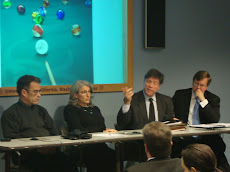But the report's criticisms of WHO's process got to the heart of what was wrong. Here are excerpts:
- Even if the definition of a pandemic depends exclusively on spread, its degree of severity affects policy choices, personal decisions and the public interest... The degree of severity of
the pandemic was very uncertain throughout the summer of 2009, well past the time, for example, when countries would have needed to place orders for vaccine. - Inadequately dispelling confusion about the definition of a pandemic. One online WHO document described pandemics as causing “enormous numbers of deaths and illness”, while the official definition of a pandemic was based only on the degree of spread.
- A pandemic phase structure that was needlessly complex.
- Continued counting of cases yielded less useful information than would have been provided by rates of hospitalization, complications and death in countries affected early on in the pandemic.
- The decision to keep confidential the identities of Emergency Committee members.
- Lack of a sufficiently robust, systematic and open set of procedures for disclosing, recognizing and managing conflicts of interest among expert advisers.
- At a critical point of decision-making about the pandemic (moving from Phase 4 to 5), conferring with only a subset of the Emergency Committee rather than inviting input from the full Emergency Committee.
- Discontinuing routine press conferences focused on the evolving pandemic was ill-advised.
- Lack of a cohesive, overarching set of procedures and priorities for publishing consistent and timely technical guidance...










No comments:
Post a Comment